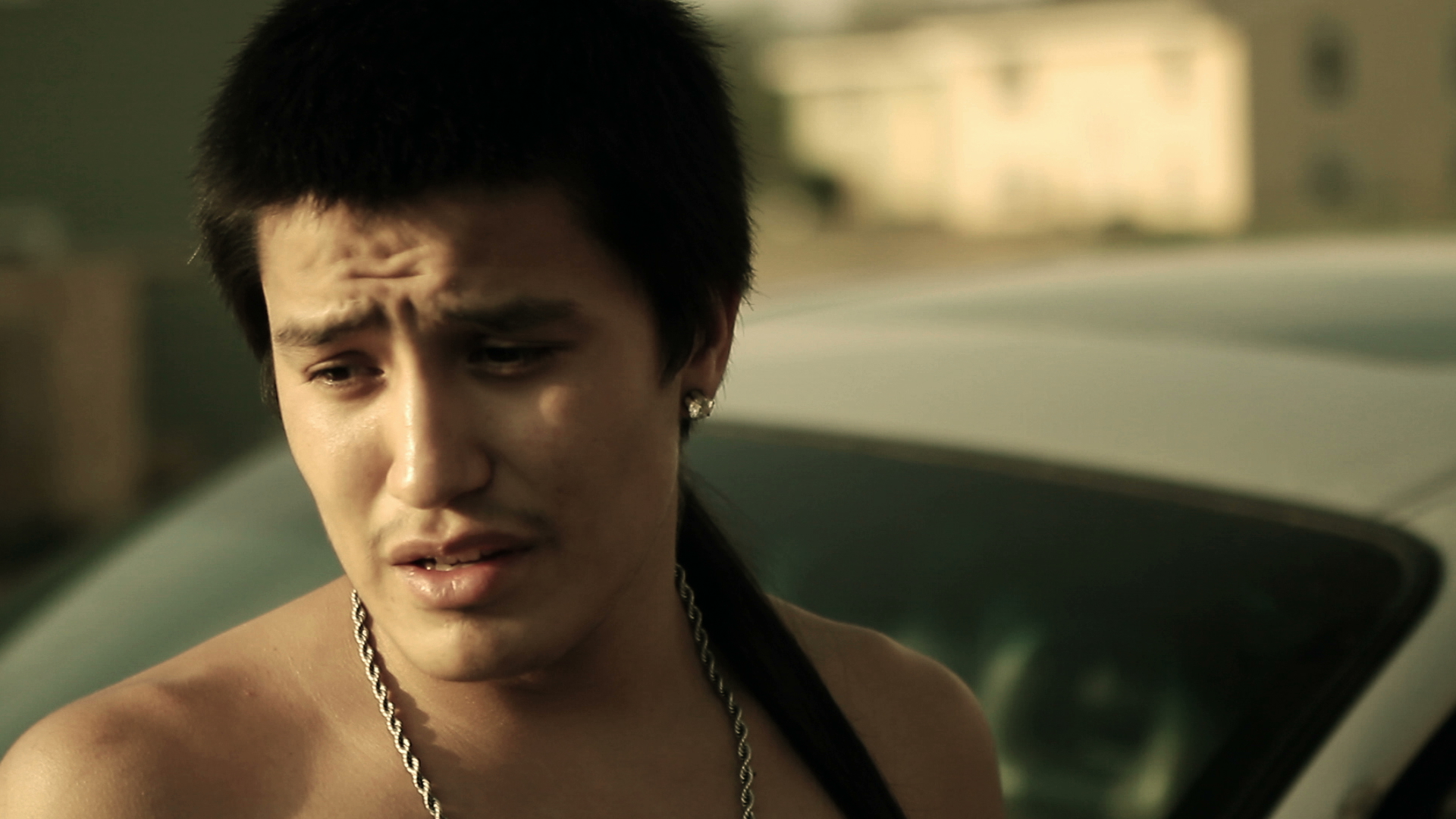If 2016 has been a bad a year for blockbusters and sequels, as we recently posited, at least the same can’t be said for documentaries. In fact, it’s been a banner year for the genre, with doc directors churning out some of the most thrilling and emotionally resonant films of the year. One such example, if on a minor scale, is the bruising criminal/drug drama “The Seventh Fire.”
READ MORE: The 20 Best Documentaries Of 2016 So Far
The simmering and somber film follows Rob Brown, a Native American gang leader in Minnesota who has spent his life in and out prison for various drug- and gang-related crimes. In its early going, the film is unmoored and drifts a bit aimlessly without properly introducing any of the characters. It isn’t until Rob, somewhat abruptly, shows up in jail musing over his rap sheet and preparing for another 57-month stint behind bars that the film finally settles into its loose narrative: Rob has a weeklong furlough before he has to hand himself over to the state.
 The counter to Rob, who is beleaguered and tired of the criminal life he’s regretfully grown accustomed to, is Kevin, Rob’s 17-year-old protégé with dreams of becoming a big-time drug dealer. Despite his eagerness, Kevin isn’t the Hollywood embodiment of a gung-ho criminal; he knows what he is doing is wrong, he knows it’s an amoral life, but, looking around at the community he lives in, he can’t see any other opportunities for himself.
The counter to Rob, who is beleaguered and tired of the criminal life he’s regretfully grown accustomed to, is Kevin, Rob’s 17-year-old protégé with dreams of becoming a big-time drug dealer. Despite his eagerness, Kevin isn’t the Hollywood embodiment of a gung-ho criminal; he knows what he is doing is wrong, he knows it’s an amoral life, but, looking around at the community he lives in, he can’t see any other opportunities for himself.
For the most part, that’s all the narrative that “The Seventh Fire” offers, and in many ways, it’s all it needs. The film, more than anything else, seeks to be a portrait of a place and time — which, in a way, relegates Rob and Kevin into perfunctory archetypal roles. Through this lens, the film acts as an indictment of America’s horrendous and prolonged mistreatment of Native Americans; centuries of repression and discrimination have cast the lives of these men long before their birth.
 Director Jack Pettibone Riccobono gives us these two men, then lets quiet, contemplative observation of their situation, their community, and the entrenched mindset of the reservation tell us the fates toward which these men are hurtling. No matter what Rob tries to teach Kevin, Kevin’s path is set in stone, without the ability to believe in another future for himself.
Director Jack Pettibone Riccobono gives us these two men, then lets quiet, contemplative observation of their situation, their community, and the entrenched mindset of the reservation tell us the fates toward which these men are hurtling. No matter what Rob tries to teach Kevin, Kevin’s path is set in stone, without the ability to believe in another future for himself.
Some of the impact of “The Seventh Fire” is blunted, though, by what almost appears to be Riccobono’s lack of understanding of what he has captured. In addition to taking far too long to find its focus, the film ignores the omnipresent force of the system beyond the reservation that has methodically constructed the opportunity-devoid reality these men are trapped within, which leaves the picture feeling, at times, incomplete. Similarly, for all the intimacy that Riccobono and his co-cinematographer Shane Slattery-Quintanilla manage to capture, some of the most important moments occur off screen and go undiscussed, making for a harmfully episodic structure.

These shortcomings, though, are minor and do little to stunt the emotional devastation that runs rampant throughout the film’s brief 88-minute runtime. Because despite the fact that Kevin can’t seem to picture much opportunity for himself, he still knows that it’s there, that there is another life that, under different circumstances, he could have had. And the same goes for Rob. When sober, his actions and responsibility seem crystal clear, as he talks about them lucidly and with an easy intelligence. Will they ever be able to break the cycle if breaking the cycle means potentially leaving behind the only place they know?
Finally, for all the guerilla-style visuals, the film is still stunningly lensed. The moments when we step away from Rob and Kevin are captured with a haunting, removed eye that creates a bleakness: the weight of inevitability that comes with an American citizenship devoid of the American Dream. For all its shortcomings, “The Seventh Fire” is a startling debut feature that proves Riccobono knows how pose challenging questions and face stark realities, even if this film never becomes the justice this particular community deserves. [B]





